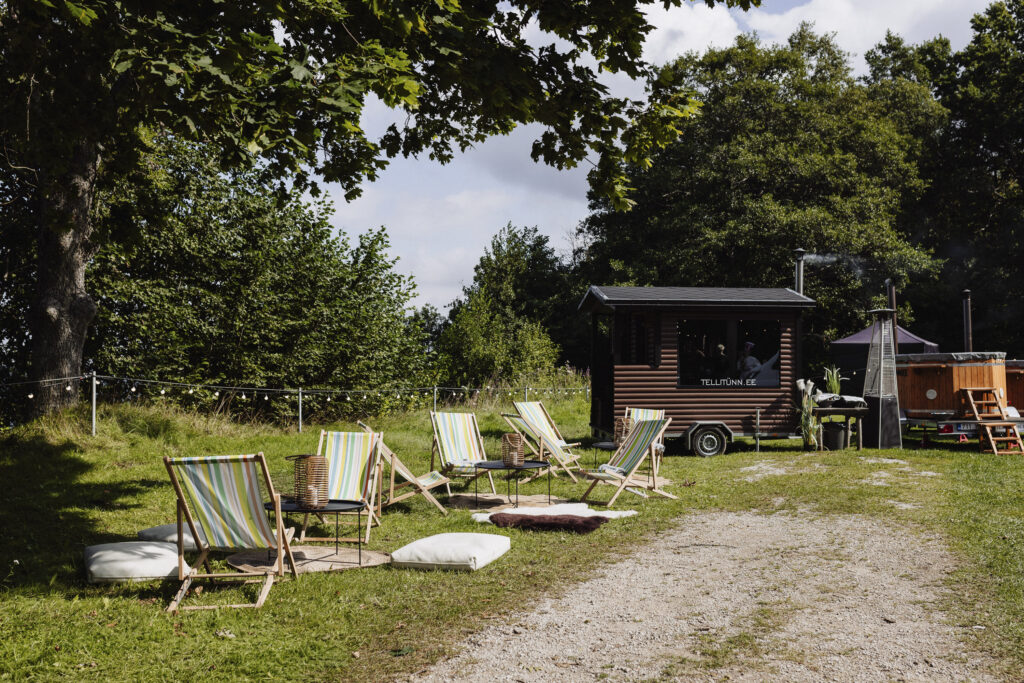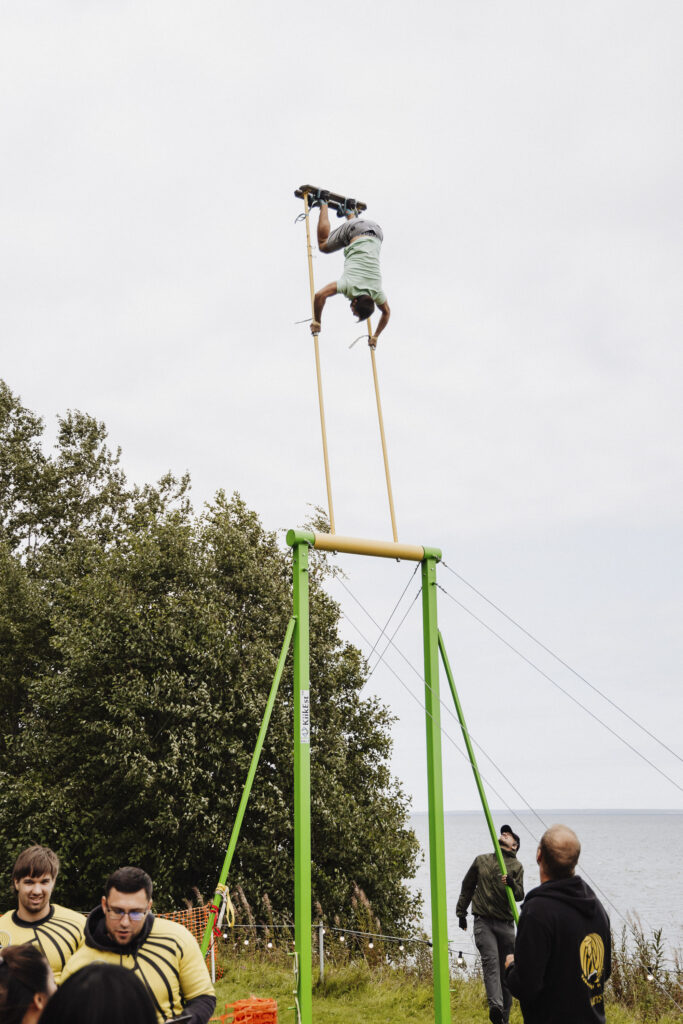Corporate summer days are a cherished tradition that many look forward to each year. But why are they truly necessary? Are they merely about leisure and celebrations, or do they serve a deeper purpose?
Studies show that well-organized team events can boost employee productivity by up to 20% and significantly reduce staff turnover. Summer days are one of the most powerful tools for achieving this—not just a shared weekend away, but a key element of internal communication, team spirit, and company culture development.

The true value of summer days
In today’s fast-paced business world, we spend most of our time in the office or in front of a computer screen, often communicating with colleagues only on work-related matters. Summer days offer an opportunity to step out of the usual work environment and see our team members in a completely different light. It is not just a vacation—it is an investment in the company’s human capital.
While summer events were once often associated solely with entertainment and alcohol, today’s trend is moving toward a much more conscious approach. Well-organized summer days strengthen relationships between team members, foster trust and collaboration, and provide an opportunity to discover colleagues’ hidden talents and hobbies. They help create shared memories that carry over into daily work. Summer days allow for interaction with colleagues outside the usual work setting, revealing new aspects of both oneself and others.
A well-planned summer event considers the preferences of all participants and creates an environment where everyone feels comfortable and included. It should not be a place where anyone feels pressured to do something that makes them uncomfortable. Just as understanding employees’ personalities and values is crucial in the workplace, it is equally important when organizing summer days.

A personal approach is key
A company’s team consists of diverse individuals with different interests and needs. The program should offer opportunities for those who enjoy physical activities and want to challenge themselves, as well as for those who prefer a more relaxed atmosphere with conversations, creative workshops, or other passive activities.
For example, the program could include:
- Sporting activities: orienteering, team games, yoga.
- Creative activities: art workshops, cooking classes, musical activities.
- Educational elements: inspiring speakers, skill-based workshops.
- Relaxing activities: nature observations, meditation, discussion circles.
- Entertainment activities: evening shows, quizzes, karaoke.
It is essential to allow enough free time for spontaneous interactions and to create a well-balanced program that considers everyone’s needs. The better you know your employees, the more memorable and successful the company’s summer days will be.


Carefully created events with something for everyone
We have designed corporate events that offer participants diverse and unforgettable experiences. For example, we organized an event where attendees could enjoy a horse carriage ride, try the ‘Kiiking’ swing, listen to music through Silent Disco headphones, and take part in creative workshops making wristbands and painting butter knives. Surrounded by nature, guests could participate in sauna rituals and relax in a hot tub. In the evening, Märt Agu led an energetic dance lesson, where participants learned the coolest dance moves to put into practice later at Trad.Attack’s high-energy concert. To top it off, a mesmerizing fire show left the audience in awe.
We also hosted a mystical-themed day for 250 participants, featuring a variety of exciting workshops happening simultaneously. Guests could visit a fortune teller, create UV paintings, enjoy a Silent Disco, and experience a performance by the James Wertz World Project. The atmosphere was enhanced by science-based interactive exhibits, which attendees could explore hands-on. Adding to the event’s mystery and visual spectacle were Valdman Events’ bubble show and magician Meelis Kubo’s performances.
At these events, every activity had many participants, and everyone found something engaging. Thanks to carefully selected activities and attention to detail, each attendee discovered something fascinating, offering them joy, experiences, and entertainment.
Step outside the comfort zone – build a stronger team
At the same time, stepping slightly outside one’s comfort zone can be highly rewarding. Boat building, for example, doesn’t require an engineering degree—logistics specialists can master it just as well. These unexpected challenges boost confidence, creativity, and adaptability, helping individuals grow both personally and professionally. They also enhance resilience to stress, improve problem-solving skills, and teach people to adapt quickly to changing situations.
The challenging activities offered during summer events not only create unforgettable experiences but also strengthen team spirit and develop new skills. Overcoming fears and pushing boundaries together leads to smoother collaboration and increased trust among colleagues. Shared experiences foster a sense of unity that carries over into daily work, making the team more cohesive, confident, and innovative.


New trend: summer events abroad
Alongside traditional summer events, an innovative approach is gaining popularity—organizing corporate team events abroad. This is not just a vacation but a well-thought-out investment in team development, where shared adventures and a new environment create the perfect setting for strengthening team spirit. Being in a foreign country naturally fosters a relaxed atmosphere, dissolving hierarchies and allowing colleagues to connect more spontaneously.
What makes an international team event particularly valuable is the opportunity to combine professional growth with cultural enrichment. For example, strategy seminars can be paired with visits to the local business environment, or team-building activities can take place in an exotic setting. While summer events abroad require more thorough planning and a larger budget, the long-term benefits outweigh the additional costs—a well-organized company retreat can become a milestone in corporate culture, inspiring the team for months after the event.


Key elements for organizing a successful summer event
When planning summer events, keep the following aspects in mind:
- Thorough preparation and consideration of participants’ preferences.
- A balanced and diverse program that includes both organized activities and free time, tailored to your company’s employees.
- High-quality food, accommodation, and entertainment to create a pleasant atmosphere.
- Clear communication with participants before and after the event.
- Risk management: backup plans for bad weather and access to first aid.
- An environmentally friendly approach throughout the event.
Well-planned summer events are an investment that pays off multiple times through improved teamwork, stronger internal communication, and higher employee satisfaction. Start planning early, involving the team from the preparation phase. Gather feedback from previous events and be open to experimenting with new formats. It’s crucial to strike a balance between structured activities and free time, ensuring that every participant feels valued and included.





